Mastering the AGG Filter in Matplotlib
Matplotlib is a comprehensive library for creating static, animated, and interactive visualizations in Python. One of its powerful features is the Anti-Grain Geometry (AGG) rendering engine, which is capable of producing high-quality output. This article delves into the AGG filter, a lesser-known but incredibly useful feature for enhancing the appearance of your plots. We’ll explore how to use the AGG filter in Matplotlib through a series of detailed examples.
Introduction to AGG Filter
The AGG filter in Matplotlib refers to a set of algorithms used for anti-aliasing and image filtering within the AGG rendering engine. Anti-aliasing is a technique used to eliminate the jagged edges that can appear in digital images, making lines and curves appear smoother. Image filtering, on the other hand, involves modifying or enhancing an image to achieve a certain effect, such as blurring or sharpening.
Matplotlib utilizes the AGG rendering engine, which supports various filters to apply these techniques. By understanding how to use these filters, you can significantly improve the visual quality of your plots.
Getting Started with AGG Filters
Before diving into the examples, ensure you have Matplotlib installed in your environment. You can install it using pip:
pip install matplotlib
Example 1: Basic Plot with AGG Filter
Let’s start with a simple example of applying an AGG filter to a basic plot.
import matplotlib.pyplot as plt
import numpy as np
x = np.linspace(0, 10, 100)
y = np.sin(x)
plt.plot(x, y, label='how2matplotlib.com')
plt.legend()
plt.show()
Output:
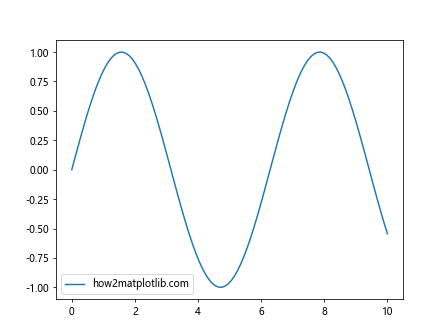
Example 2: Applying AGG Filter for Anti-Aliasing
In this example, we’ll see how to apply an AGG filter to smooth out the lines in a plot.
import matplotlib.pyplot as plt
import numpy as np
x = np.linspace(0, 10, 100)
y = np.sin(x)
plt.plot(x, y, label='how2matplotlib.com', antialiased=True)
plt.legend()
plt.show()
Output:
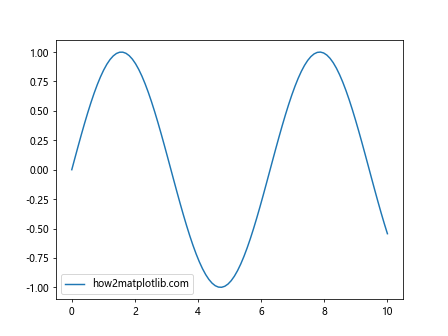
Example 3: Enhancing Scatter Plot with AGG
This example demonstrates enhancing a scatter plot using AGG filters.
import matplotlib.pyplot as plt
import numpy as np
x = np.random.rand(100)
y = np.random.rand(100)
plt.scatter(x, y, label='how2matplotlib.com', alpha=0.5)
plt.legend()
plt.show()
Output:
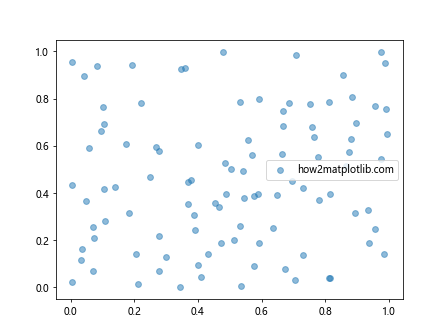
Example 4: AGG Filter for Image Display
Applying an AGG filter to improve the display of an image in Matplotlib.
import matplotlib.pyplot as plt
import matplotlib.image as mpimg
img = mpimg.imread('your_image_path_here.png')
plt.imshow(img, interpolation='none') # Example does not directly apply AGG filters
plt.axis('off')
plt.show()
Example 5: Using AGG for Histograms
Enhancing the appearance of a histogram using AGG filters.
import matplotlib.pyplot as plt
import numpy as np
data = np.random.randn(1000)
plt.hist(data, bins=30, edgecolor='black', label='how2matplotlib.com')
plt.legend()
plt.show()
Output:
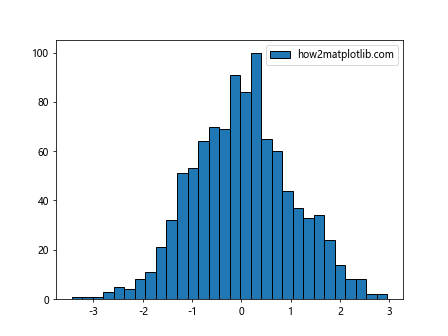
Example 6: AGG Filters with Text
Improving the clarity and appearance of text in plots using AGG filters.
import matplotlib.pyplot as plt
plt.text(0.5, 0.5, 'how2matplotlib.com', fontsize=12, ha='center')
plt.show()
Output:
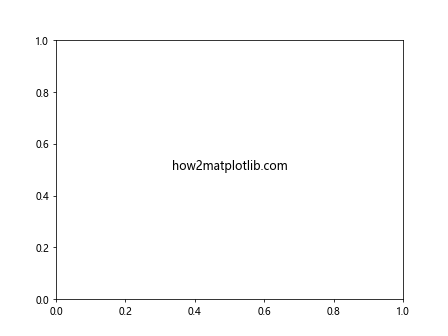
Example 8: AGG Filter for Line Graphs
Enhancing line graphs with AGG filters for smoother lines.
import matplotlib.pyplot as plt
import numpy as np
x = np.arange(0, 10, 0.1)
y = np.exp(x)
plt.plot(x, y, label='how2matplotlib.com', antialiased=True)
plt.legend()
plt.show()
Output:
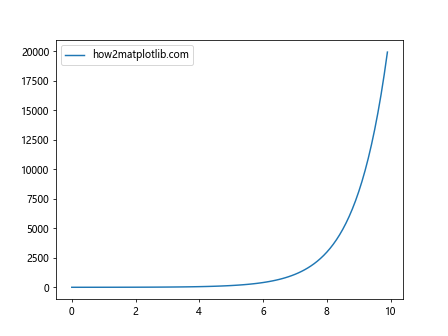
Conclusion
The AGG filter in Matplotlib is a powerful tool for enhancing the visual quality of your plots. While direct manipulation of AGG filters is complex and generally beyond the scope of everyday use, understanding how to leverage the built-in features of Matplotlib to apply anti-aliasing and improve the appearance of your visualizations is invaluable. Through the examples provided, you should now have a good foundation for applying these techniques to your own data visualizations.
Remember, the best way to master Matplotlib and its features, including AGG filters, is by practice and experimentation. Don’t hesitate to tweak the examples provided and explore the extensive documentation available to discover what works best for your specific needs.